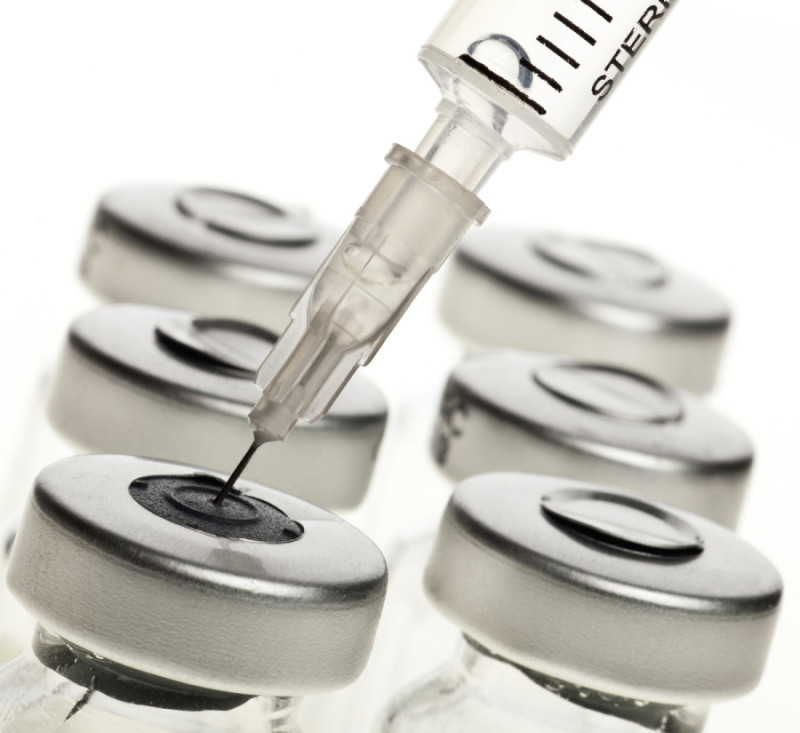“Vaccinations are essential elements of preventative health,” said Cheryl Bonecutter, DNP, March of Dimes of South Texas’ Chair for Maternal and Child Health Impact Committee and University Health System’s Director of Neonatal and Perinatal Services. “Women who are either considering pregnancy or currently pregnant should talk to their healthcare provider about their risk factors for immunizations. While live, attenuated virus vaccines aren’t recommended in pregnancy, it’s imperative for women to receive vaccines that contain nonviable antigens, which are considered safe to administer to pregnant women.”
Pregnant women will benefit from appropriate vaccinations, and so will their developing babies. Immunizations during pregnancy have the added benefit of preventing disease in newborns by passively transferring antibodies to the fetus. As such, the neonate is vaccinated and protected in its newborn stage, a time when exposure to viruses is pervasive.
Which immunizations are recommended, and which should be avoided? The following are the most recent recommendations from the American College of Obstetrics and Gynecologists (ACOG).
Yes:
- Influenza “All adults should receive an annual influenza vaccine before or during flu season, which runs from October through March, but it’s particularly important for pregnant women to receive this vaccine,” Dr. Bonecutter said. “Changes in the immune system, heart, and lungs make pregnant women more susceptible to contracting the influenza virus, which can lead to serious maternal complications including pre-mature labor and delivery.” The influenza vaccine protects both women and their newborns from the risk of serious illness both during the season and before the newborn can receive the vaccination themselves at 6-months- old. It is also safe for postpartum and breastfeeding women, and it can be administered at any stage of the pregnancy. The only exception to this rule is the live, intranasal vaccine, which is not recommended at any point for pregnant women.
- Tdap (Tetanus, diphtheria and whooping cough or pertussis) Newborns are not able to begin this vaccination series until they are 3-months-old, a time period during which they are particularly vulnerable to these viruses. As the overwhelming majority of pertussis morbidity and mortality occurs in infants 3-months-old or younger, pregnant women who receive the Tdap vaccine protect their newborns by creating anti-pertussis antibodies which the fetus receives in utero. Pregnant women should receive this vaccination between 27 and 36 weeks of pregnancy, every time they are pregnant. If a woman does not receive this vaccination during her pregnancy, ACOG recommends immediate postpartum administration to reduce the risk of transmission to the newborn. Tdap is also safe for breastfeeding women.
“Texas has lower-than- average national rates of women receiving comprehensive prenatal care, and San Antonio has among the lowest prenatal care percentages in the state”- Mike Koroscik, CEO of the Institute for Women’s Health, San Antonio
Maybe:
- Hepatitis A, Hepatitis B, Meningococcal and Pneumococcal “These vaccinations should be administered based on the mother’s risk factors for exposure,” Dr. Bonecutter advised. “Pregnant women should consult with their healthcare provider to determine their risk level for infection and whether they would benefit from receiving any of these vaccines.”
No:
- Varicella (VAR – chickenpox) If a woman has never had chickenpox or been vaccinated, it’s best they are immunized before trying to conceive. For those born in the United States in 1980 or later, the vaccination is administered in two doses four to eight weeks apart.
- Measles, Mumps and Rubella (MMR) “This is another instance where women are advised to receive this vaccine before conception,” Dr. Bonecutter said. Adults born in 1957 or later should have at least one dose of the MMR vaccine, and depending on risk factors, they may require a second dose.
- Human Papillomavirus (HPV) The HPV vaccine protects against cervical cancer, and in recent years, it has been responsible for a sharp decline in the number of cervical cancer cases among young women. The HPV vaccine is administered in three doses over a six month period for women 26-years-old and younger, and it is not recommended for women who are pregnant.
However, if a woman receives any of these three vaccinations while pregnant it may not be cause for concern. “While ACOG strongly recommends these vaccinations are administered prior to conception, receiving the vaccine before discovering a pregnancy still happens,” Dr. Bonecutter said. “Healthcare providers and their patients working together to plan or prevent conception can develop an individualized vaccination plan. This provides a great opportunity to evaluate the health of a mother to optimize her wellness before, during and just after conception.”
“Vaccinations are essential elements of preventative health”- Cheryl Bonecutter, DNP, March of Dimes of South Texas’ Chair for Maternal and Child Health Impact Committee and University Health System’s Director of Neonatal and Perinatal Services
Of course, immunizations are only part of a full tactical plan for prenatal care, which has reached crisis levels in Texas. “Texas has lower-than- average national rates of women receiving comprehensive prenatal care, and San Antonio has among the lowest prenatal care percentages in the state,” said Mike Koroscik, CEO of the Institute for Women’s Health, San Antonio. “Our OB-GYNs work closely with their patients who are considering becoming pregnant to ensure they are prepared for the healthiest pregnancy possible.”
In addition to educating pregnant women about which vaccinations to receive or avoid as part of their prenatal care, healthcare providers should also inform patients of both the reassuring safety data backing recommended vaccinations and the lack of evidence linking miscarriages to vaccine administration.
“There are many components to a woman realizing a healthy, full-term pregnancy,” Dr. Bonecutter said. “It’s our responsibility to partner with the women we care for to do our part in helping them achieve that.”
For more information call 210.349.6626 or visit www.ifwh.org.







Recent Comments